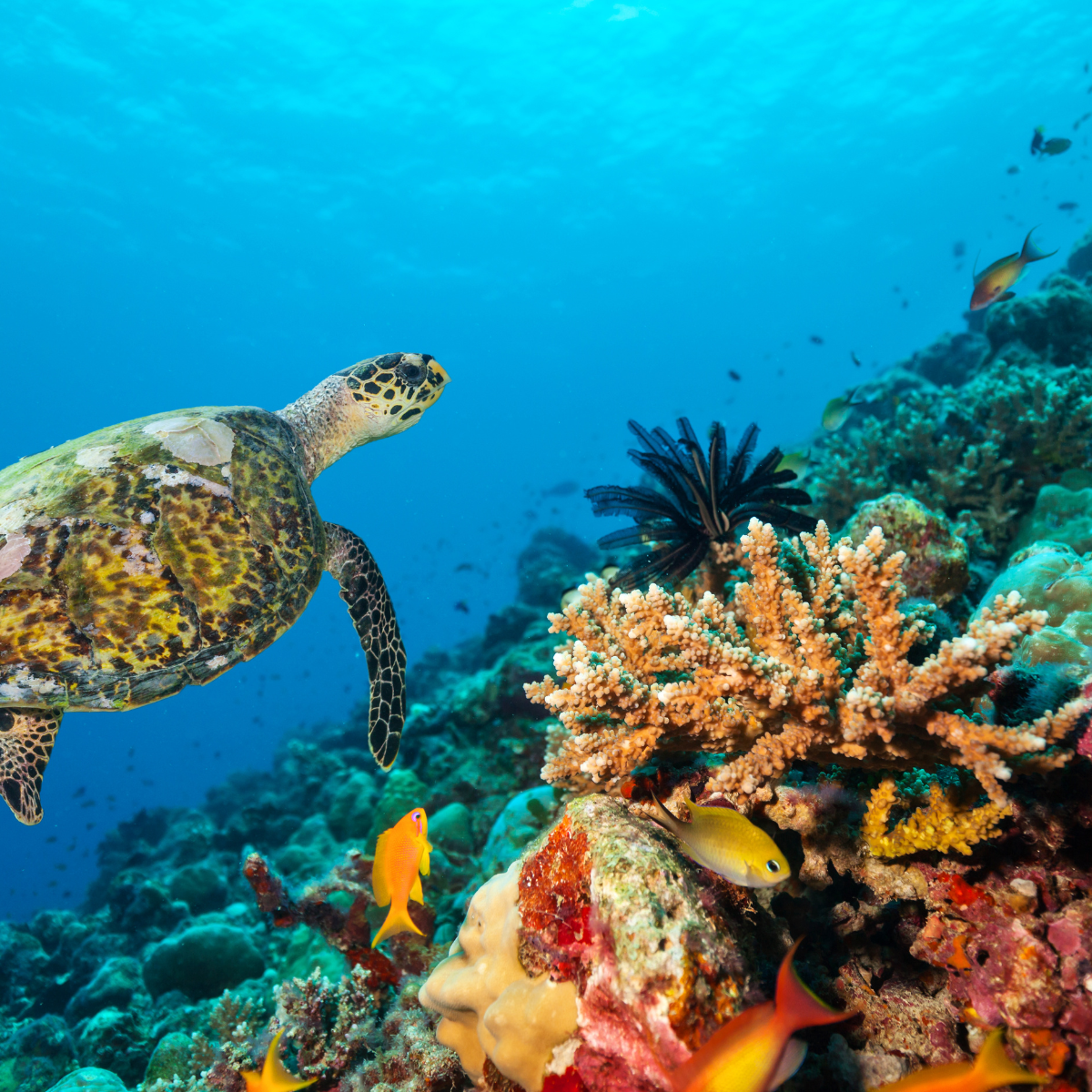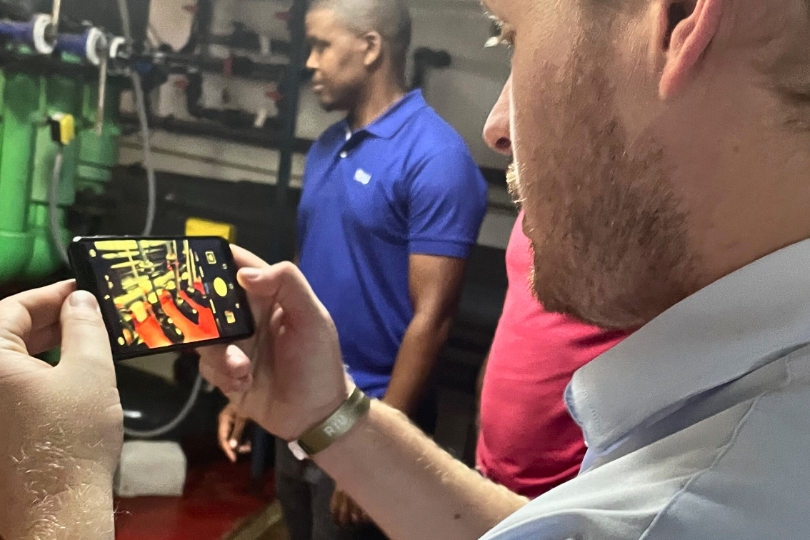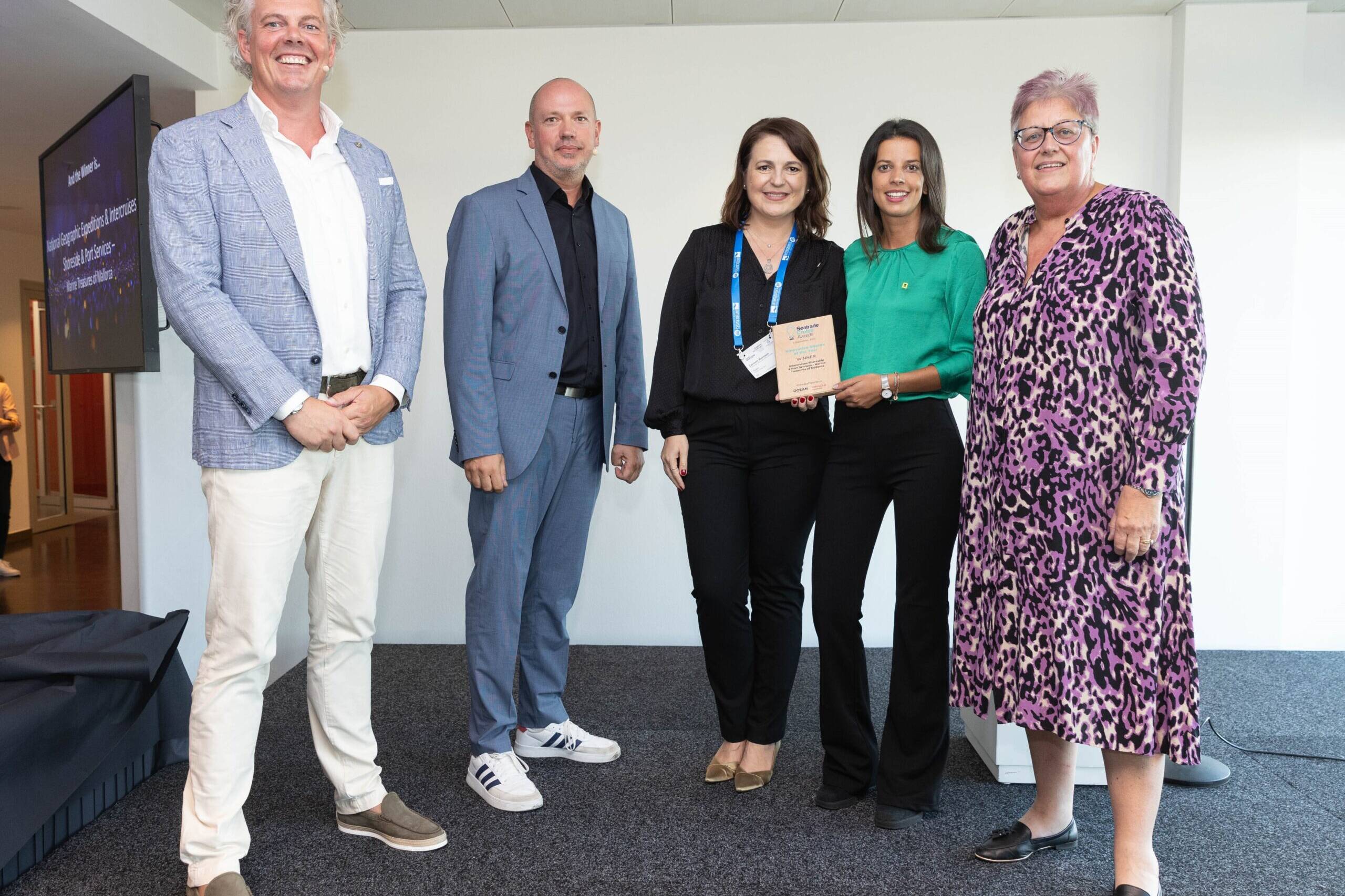In 20200, Intercruises achieved Global Sustainable Tourism Council (GSTC) certification for our sustainability management system (SMS) and experiences development process, enabling us to create experiences cruise lines can offer to guests as ‘GSTC certified’ shore excursions.
Working with our destination teams and partners, we can now use the SMS, combined with the GSTC Criteria, to monitor and evaluate the entire supply chain for shore excursions. This includes local activity suppliers, restaurants, venues, guides and transportation providers, and is part of an ongoing feedback loop to continually enhance destination sustainability.
Going forward in our pursuit of a more sustainable future, these criteria will serve as foundational principles, helping to shape the development and expansion of our shorex catalogue.
Transport
Appropriate vehicles
We use appropriate vehicles for the type and group size to reduce our impact on the environment.
Sustainable transport
We give preference to sustainable forms of transport where possible, opting for electric vehicles, bicycles, solar powered catamarans, etc.
Emissions
Motorized vehicles are well maintained and regularly checked to reduce emissions and energy use, complying with local legal emission standards.
Routes
Routes are chosen for minimum impact on local flora and fauna and off-road routes on designated paths only.
Driving techniques
Drivers receive training in sustainable driving techniques to ensure efficient fuel consumption and economic use of air conditioning to reduce emissions where possible.
Equal opportunities
Transport is provided for people with disabilities where possible. These are in place, in line with the human rights guidelines.
Purchasing
Locally produced products
Where we offer experiences that include opportunities to purchase souvenirs and handicrafts, they are locally produced and typical products.
Local businesses
Preference is given to shops and stop-off points providing benefit to local communities.
Packaging
We avoid using unnecessary packaging as much as possible (especially single-use plastics) and give preference to locally produced, reusable and/or recyclable products, wherever possible.
Souvenirs
We share guidance on illegal or not sustainably produced souvenirs, such as historic or illegal archaeological artifacts or souvenirs from threatened animal and plant species, as indicated in CITES treaty and the IUCN ‘Red List’ (e.g., coral, starfish, seahorses, wild animal skin, ivory, hard wood, bush meat, tortoise shell, plant parts).
Food & Beverage
Locally produced food
We choose locally sourced and produced food to benefit the local economy, using sustainable products where possible and giving preference to Fair Trade products, to support workers’ rights and fair labor practices.
Packaging
We minimize single-use plastic and excess packaging to reduce CO2 emissions, opting for reusable, biodegradable, or recycled alternatives where possible.
Locally owned businesses
We prioritize locally owned or managed restaurants that embody the local culture and seamlessly blend with the community’s environment.
Waste management
We favor establishments and vendors with effective waste management policies, emphasizing food waste reduction, reusable items, and proper recycling and disposal, aligned with local infrastructures.
Waste/water consumption
We prefer suppliers with an environmental policy in place, to reduce energy and water consumption, with measures like the use of LED, the installation of flow restrictors, etc.
Authentic recipes
We choose menus or snacks that feature authentic, local recipes, ideally seasonal and organic.
Endangered species
We avoid the inclusion of any endangered species (red tuna, seafood outside of season, shark fin soup etc).
Fair employment practices
We work with establishments that practice fair employment practices in line with the Human Rights Guidelines.
Interaction with Local Communities
Interaction
We advocate responsible interaction with local communities.
Use of local services
Public facilities like transportation, restrooms, markets, and visited sites must remain accessible and be used responsibly, both for residents and visitors.
Use of local resources
Local community members must have continuous access to their essential resources, including food, water, land, fuel, and shelter. Our experiences should never impede this access.
Overcrowding
We balance group sizes and frequency of visits to minimize impact on sites and communities visited (e.g., cultural attractions and villages) and avoid overcrowding.
Social norms
We offer guidance on local social norms, including dress codes, photography rules, and respectful behaviors, as well as best practices when visiting cultural sites and indigenous communities.
Socioeconomic circumstances
We respect cultural differences (e.g. culture shock in areas of extreme poverty) and avoid exploiting extreme circumstances, such as poverty, as tourist attractions (e.g., no slum tours, using children, people with disabilities for begging).
Commercialization of culture
Local culture shall not be commercialized or come across as staged (fake) authenticity (i.e., a cultural practice, event or activity that is performed for the purpose of the tourists, distorting the truth).
Animal Welfare
Compliance
We collaborate with suppliers to ensure compliance with national and international laws and best practices, with a focus on upholding the highest standards of animal welfare and protection in all establishments and attractions we facilitate visits to.
Audits
We believe that through audit and a close working relationship with our partners we can meet customer expectations on the animal welfare standards in excursions.
Revisions
For animal-related activities, we initially assess animal welfare using industry-recognized guidelines to gauge potential risks. If significant concerns about animal welfare emerge, an external evaluation is necessary.
If in the external evaluation, any non-conformity is detected, a set time frame will be provided to solve it. Once the corresponding external evaluation process is successfully closed, the activity can go live across our different channels.
Human Rights & Modern Slavery
A safe environment
We’re committed to creating a safe environment and ensuring colleagues understand their moral and legal responsibility to uphold basic human rights, directly or indirectly.
Human rights
We commit to upholding human rights across our global operations and taking necessary measures to prevent modern slavery and human trafficking within our business and supply chain.
Modern slavery
Human trafficking violates fundamental human rights and dignity. We retain the right to terminate business relationships with those involved in any exploitation or associated activities.
Contracts
We have included specific clauses in the Terms & Conditions of our businesses’ contracts and supplier Code of Conduct.
Guidelines & procedures
We are committed to train and raise awareness among our colleagues on Modern Slavery and Human Trafficking, with special focus on the those working in our destinations, providing guidelines on how to report any issues and procedures to follow.
Child Protection
The Code
We are an active member of The Code, a responsible tourism initiative, run by ECPAT International, to provide awareness, tools and support to the tourism industry to prevent the sexual exploitation of children.
By signing The Code, we commit to taking these 6 essential steps to help protect children:
1. Establish a policy and procedures against sexual exploitation of children.
2. Train employees in children’s rights, the prevention of sexual exploitation and how to report suspected cases.
3. Include a clause in contracts throughout the value chain stating a common repudiation and zero tolerance policy of sexual exploitation of children.
4. Provide information to travelers on children’s rights, the prevention of sexual exploitation of children and how to report suspected cases.
5. Support, collaborate & engage stakeholders in the prevention of sexual exploitation of children by including minimum requirements in our product specifications.
6. Report annually on our implementation of The Code.
To find out more about our sustainability management system and the GSTC certification for shorex development, read here…
For all the latest Intercruises news, follow us on LinkedIn…
Innovators: Shaney Robertshaw Wright on Health & Safety
18/04/2024
Discover the unique challenges faced by H&S managers in the cruise industry...
Dry-Dock Logistics – “The Invisible Enabler”
20/11/2023
Explore the integral yet often overlooked role of logistics teams in the world…
Seatrade Awards – Intercruises wins Shorex of the Year 2023
10/09/2023
Our National Geographic Day Tour, ‘Marine Treasures of Mallorca,’ is crowned…


























